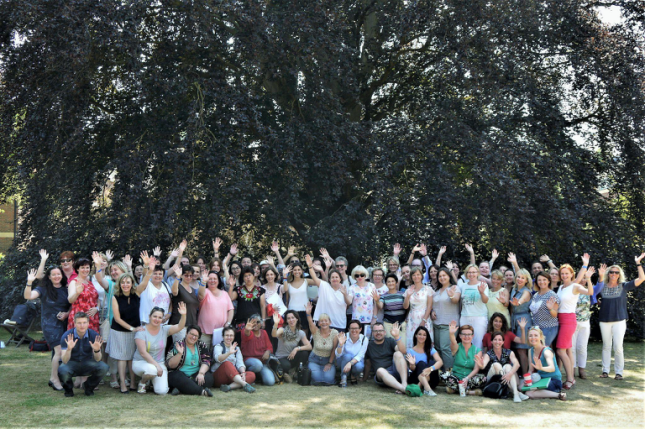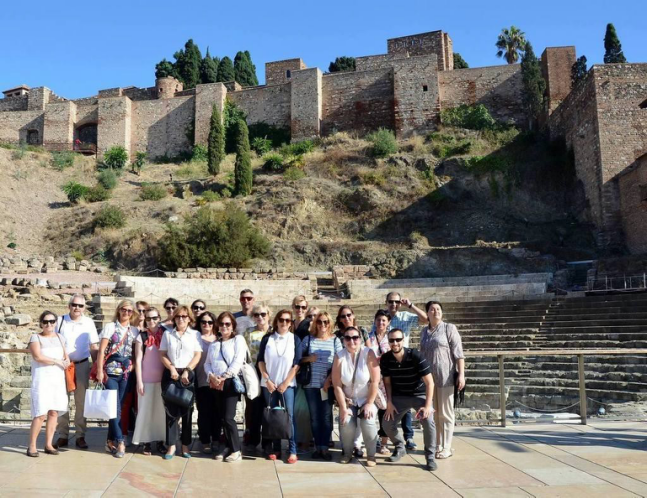
Topic(s) addressed
The aim of the project was to learn about, and from, good practices of different European schools, with teachers provided with the opportunity to benefit from in-service training sessions held abroad. In particular, the project focused on languages and the natural sciences. The project’s key topics were new pedagogies, innovative classrooms, blended learning, integrated curriculum, and foreign language instruction. Over the course of the project, participants learnt from their European colleagues; improved their didactical and pedagogical knowledge; developed their social, language, and (inter)cultural skills; as well as created new professional relationships. As a result, closer interest in teamwork was generated, with greater teacher autonomy gained.
Target groups
Altogether 9 teachers participated in 4 teacher development courses and 3 structured educational visits. The 6 female and 3 male teachers comprised of Estonians between the ages of 26–60, with their teaching subjects consisting of Estonian language and literature, English, French and Spanish, History, Physics, Chemistry, and Biology.
Methodologies
Multidisciplinary approaches: the project promoted innovative teaching strategies that engaged blended learning and an integrated curriculum; for example, teacher-generated content was produced to teach Biology with Chemistry and Physics, French with History, Society with English, and ICT with Estonian. Key competence development (knowledge, skills and attitudes): participants improved at science, technology, mathematics, ICT, learning strategies, as well as in their social and civil competences.
Linking formal, non-formal and informal learning: the project also prepared teachers for further transnational strategic partnerships, and, as a result, a new Erasmus+ project “May ICT be with You” was launched in September 2019 in order to teach language with film, content with language, and learning skills with ICT. Innovative use of tools: biology and chemistry teachers learnt about various in vitro and in vivo animal-testing practices, with a focus on biomedical analyses and research (the quality of sperm, blood testing, and cell-culture techniques). As a result, an elective Moodle course on biomedicine pharmacology is now being taught at our school. Learners’ active role in the learning process: according to researcher John Hattie, a teacher’s fundamental task is to evaluate the effects of their teaching on their students’ learning and achievement, which allows most participants to negotiate learning intentions and success criteria prior to each new study period. Furthermore, they also seek to give feedback, which is helpful and encouraging rather than shallow and undermining. This claim is supported by participants’ e-portfolios, which can be found here: https://ttgteachers.eu/portfolios/ will provide this claim with solid evidence.
Environments
Digital/blended learning: most importantly, the project was implemented to master the art and craft of teaching; however, it also addressed digital/blended learning and innovation. The evidence for participants’ outcomes exists in several elective courses that they compiled to teach about the world using an integrated curriculum. Schools as enablers of innovation: education is reputedly facing far-reaching changes, and in light of neoliberalism, traditional academic curricula are now being transformed and schools are now being seen as central building blocks in economic markets. It follows that ‘Bildung’ has been replaced with 21st-century skills and knowledge-based learning with student-centeredness. However, many teachers feel that they have been disempowered and de-skilled; moreover, increasingly they fear that popular pursuit of school happiness, instead of mental effort and perseverance, will continue to lower educational standards. The rationale for the second staff mobility project of Tartu Tamme Gymnasium was to help teachers better understand their new reality, as well as raise their self-esteem as modern time educators.
Teachers
Teachers’ agency as innovators: teachers are innovators because of the new technologies they use, as well as the principled approaches they engage. For example, it is crucial to ask the Five Ws and 1H questions, such as Why? Who? What? Where? When? and How? in order to use technology for meaningful learning and teaching.
Teachers’ skills and competences: teaching is both an art and a craft. On the one hand, it is subtle, unique, and intangible; while on the other, it requires mastery in planning lessons and courses, and teaching efficient classes. Teaching also resembles transformational leadership in many respects; for example, just like a charismatic leader, a teacher is expected to model high moral and ethical standards, create enthusiasm, build confidence, and “take the road not taken” (Frost, 1916). Teachers’ cooperation and peer learning: participants worked in pairs and generated new pedagogical resources jointly; in addition, an e-book called “Top Tips for New Pedagogies” was written in close collaboration with all 9 teachers.
Impact
Quality of innovation processes: those supporting new pedagogy regard the learning process as superior to learning outcomes, discovery learning more important than guided instruction, and personal experience more valuable than expert knowledge. However, those in favour of traditional pedagogy disagree – for them, in-depth knowledge and mastery can only be acquired through hard work, intrinsic motivation, and full responsibility of one’s learning. One might say that progressive and traditional views to education are equally valid. Tom Sherrington, for example, explained it through the metaphor of a progressive-traditional pedagogy tree – in order to receive a good education, one will need the roots of learning to be well nourished (progressive), a strong framework to be built (traditional) and rich inputs to be provided (progressive and traditional together). This project provided the basis for the third staff mobility project “Innovation of cultural studies” ( https://tammegymnaasium.ee/ku/) and the second school project “May ICT be with You”( https://griterasmusplus.eu/), with both projects coordinated by Tartu Tamme Gymnasium.
- Reference
- 2017-1-EE01-KA1 101-034754
- Project locations
- Estonia
- Project category
- Secondary education
- Project year
- 2021
Stakeholders
Participants
Bell Teacher Campus
- Address
- United Kingdom
English Matters
- Address
- Spain
IFOM
- Address
- Italy
LabMagister
- Address
- Hungary

